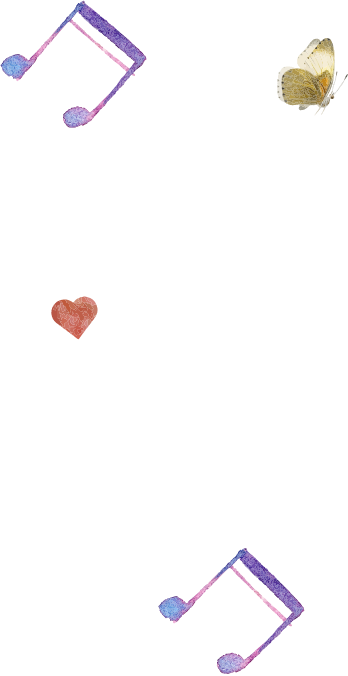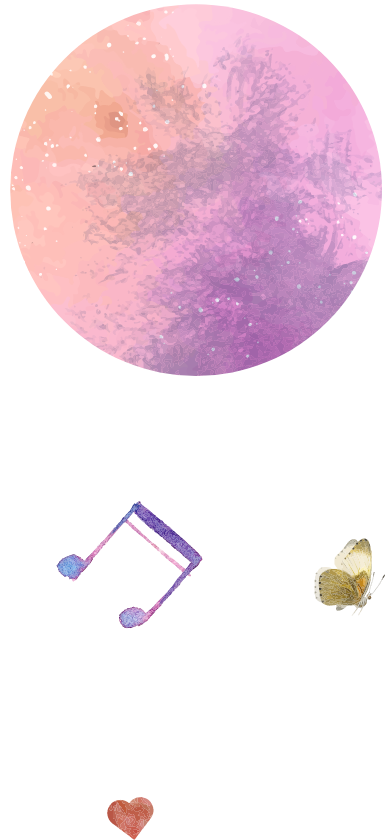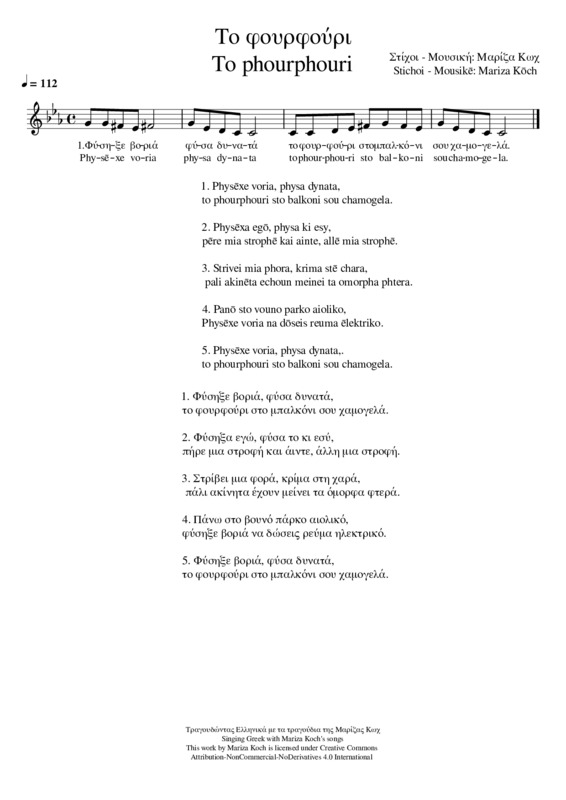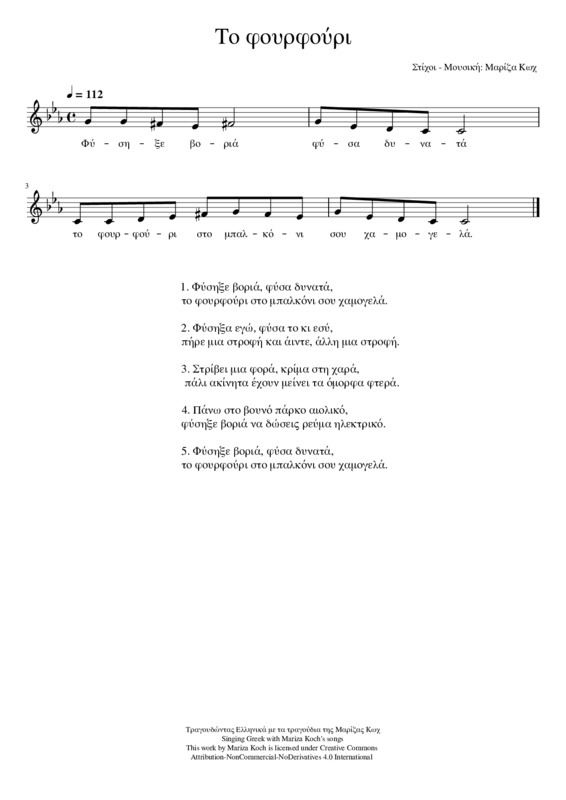
To phourphouri

To phourphouri
Pronunciation
Articulation of the consonants /φ/ (/ph/) and /β/ (/v/) and their use in the Greek language [φουρφούρι (phourphouri, wind spinner), φύσηξε (physēxe, blow) φύσα (physa, blow!), φτερά (phtera, wings), βοριάς (vorias, north wind)]. Make the distinction between voiceless "ph" and voiced "v".
Practice the targeted blowing with "ph" as well as the diaphragmatic breathing.
Practice the targeted blowing with "ph" as well as the diaphragmatic breathing.
Speech Comprehension and Production
Personification of the north wind and the wind spinner. The dialogue as an expressive linguistic feature for vivid descriptions.
Climax when moving from the balcony to the wind farm and back again to the balcony. Discuss with the pupils the importance of this choice. Use of climax in different subjects i.e. from pot to nature, from individual to whole, from family to society.
Imperative of the Simple Past [φύσηξε (physēxe, blow)] and Simple Present [φύσα (physa, blow).
Cross rhyme: δυνατά-χαμογελά (dynata-chamogela), εσύ-στροφή (esy-strophē), χαρά-φτερά (chara-phtera), αιολικό-ηλεκτρικό (aioliko-ēlektriko) etc.
Refer to the need for responsibility, constant participation in the achievement of goals [στρίβει μια φορά, κρίμα στη χαρά, πάλι ακίνητα έχουν μείνει τα όμορφα φτερά (strivei mia phora, krima stē chara, pali akinēta echoun meinei ta omorpha phtera = it spins once, it's a pity, the beautiful wings have been again motionless)] and the need for cooperation and teamwork [φύσηξα εγώ, φύσα το κι εσύ, πήρε μια στροφή και άιντε, άλλη μια στροφή (physēxa egō, physa ki esy, pēre mia strophē kai ainte, allē mia strophē = I blew, blow it too, it took a spin and then one more spin)].
Climax when moving from the balcony to the wind farm and back again to the balcony. Discuss with the pupils the importance of this choice. Use of climax in different subjects i.e. from pot to nature, from individual to whole, from family to society.
Imperative of the Simple Past [φύσηξε (physēxe, blow)] and Simple Present [φύσα (physa, blow).
Cross rhyme: δυνατά-χαμογελά (dynata-chamogela), εσύ-στροφή (esy-strophē), χαρά-φτερά (chara-phtera), αιολικό-ηλεκτρικό (aioliko-ēlektriko) etc.
Refer to the need for responsibility, constant participation in the achievement of goals [στρίβει μια φορά, κρίμα στη χαρά, πάλι ακίνητα έχουν μείνει τα όμορφα φτερά (strivei mia phora, krima stē chara, pali akinēta echoun meinei ta omorpha phtera = it spins once, it's a pity, the beautiful wings have been again motionless)] and the need for cooperation and teamwork [φύσηξα εγώ, φύσα το κι εσύ, πήρε μια στροφή και άιντε, άλλη μια στροφή (physēxa egō, physa ki esy, pēre mia strophē kai ainte, allē mia strophē = I blew, blow it too, it took a spin and then one more spin)].
Music Activities
Learn the melody emphasizing on the trisemitone F#-Eb.
The strophic form of the song as a connecting element in the spinning of the wind spinner.
Accompany the song with rhythmic movements or movements of your choice (first and second part of the phrase) which denote the properties of the air. Sing in canon following the movement.
Compose rhythmic and melodic ostinati for the instrumentation of the song.
The strophic form of the song as a connecting element in the spinning of the wind spinner.
Accompany the song with rhythmic movements or movements of your choice (first and second part of the phrase) which denote the properties of the air. Sing in canon following the movement.
Compose rhythmic and melodic ostinati for the instrumentation of the song.
Cross-thematic Connections - Greek Culture
Interdisciplinary concept: dependence.
Cause - effect relationships in nature and technological culture.
Make reference to renewable energy sources (wind, geothermal energy, water, sun, wind farms) as well as to the way and reason for their use.
Cultivation of ecological consciousness for the utilization of the elements of nature in energy production.
Learn about the myth of god Aeolus and the story of the wind bag of Aeolus from Odyssey.
Presentation of the compass rose and identification of the winds.
Cause - effect relationships in nature and technological culture.
Make reference to renewable energy sources (wind, geothermal energy, water, sun, wind farms) as well as to the way and reason for their use.
Cultivation of ecological consciousness for the utilization of the elements of nature in energy production.
Learn about the myth of god Aeolus and the story of the wind bag of Aeolus from Odyssey.
Presentation of the compass rose and identification of the winds.
Age level
3-7 years old
7-11 years old
Language level
Intermediate
Anekdoto / Mēlo-rodi





